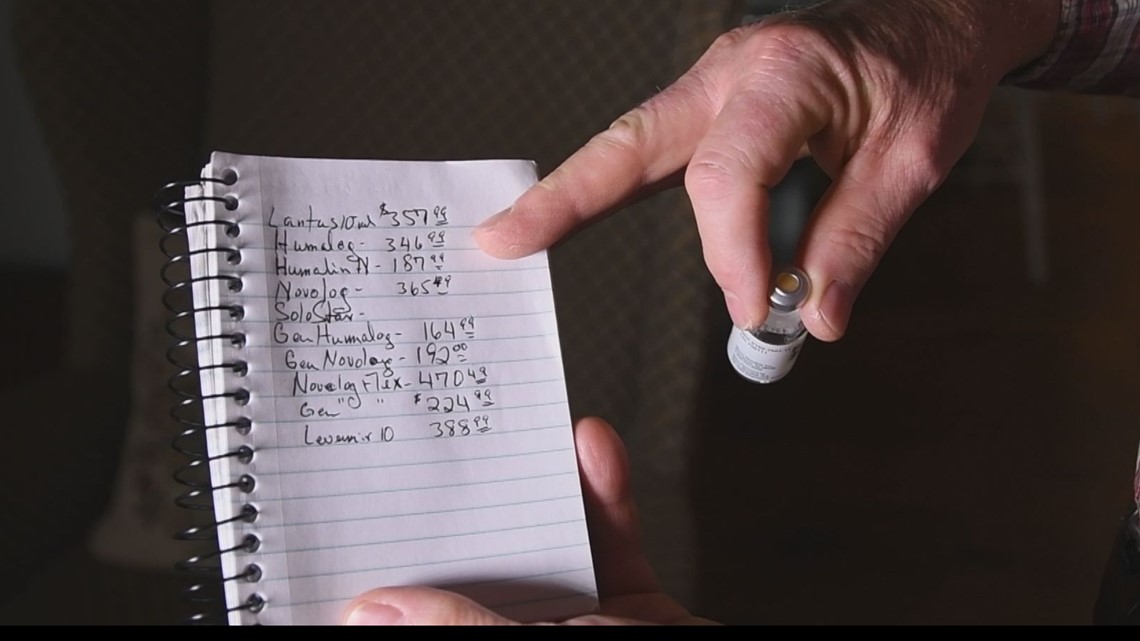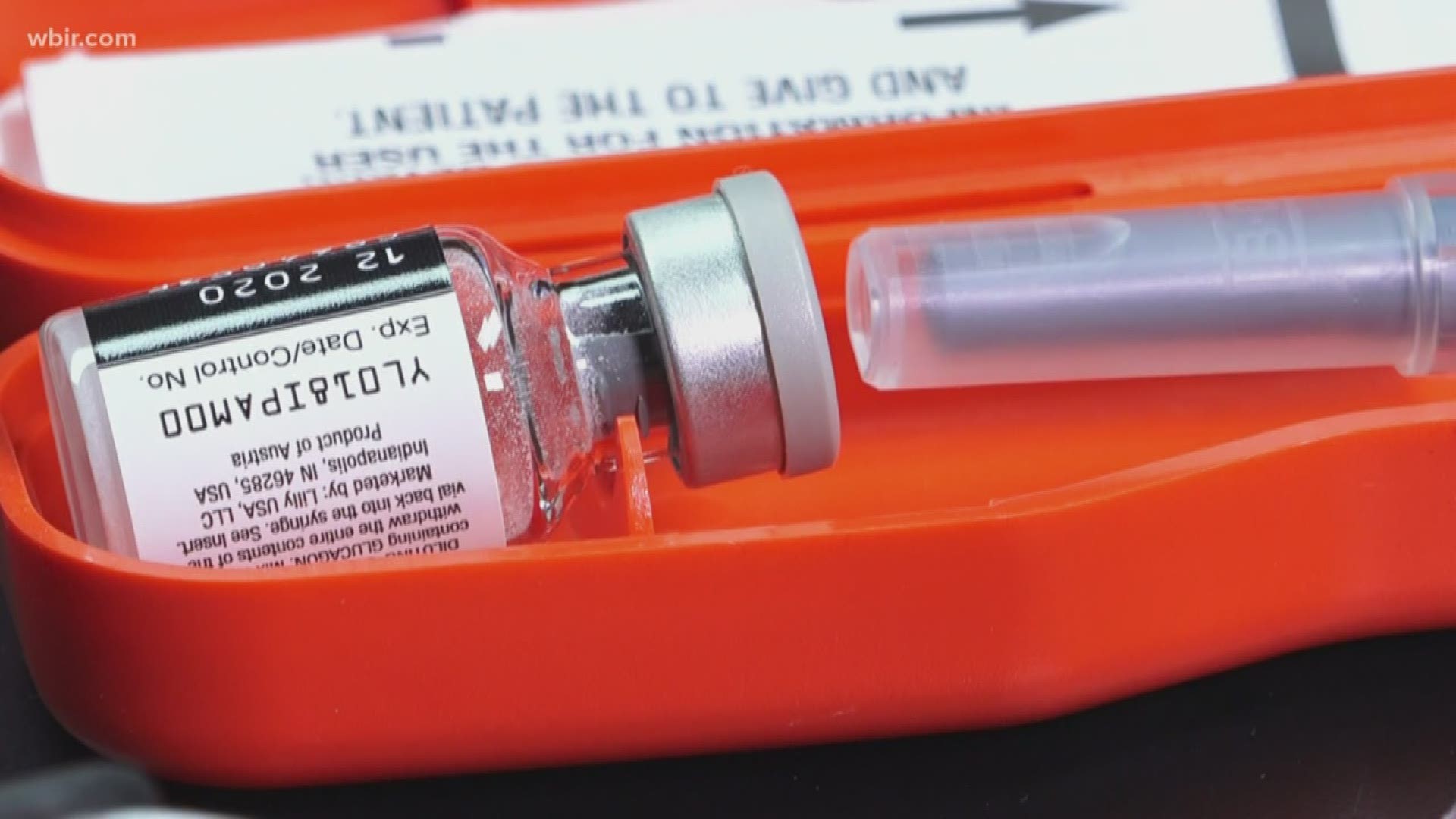KNOX COUNTY, Tenn. — At 11 months old, Adam Coker was diagnosed with Type 1 diabetes. He depends on insulin to survive.
"If you eat food, you have to have insulin, and eating is not optional," Coker said. "Without insulin, I essentially would either be permanently in the hospital or dead."
Coker said there have been times he's spent his entire paycheck on insulin, in part due to the rising cost.
A congressional memo from April of 2019 shows prices of the most commonly prescribed insulins have increased from about $20 per vial to more than $250 per vial in the past two decades. Adjusted for inflation, that's a 700% increase.
"The insulin prices are pretty incredible," Adam's father Dan said. "Monthly bills for some folks are several hundred dollars with insurance copays."
Dan Coker brought a list of prices from the pharmacy his son uses. Each insulin bottle costs between $164 and $471. Most Type 1 diabetics, like his son, require multiple types of insulin.


"It's very, very high," Dan Coker said. "Even with Insurance copays, it's fairly expensive."
On Thursday, State Senator Katrina Robinson introduced a bill that would cap insulin copays at $100 per 30-day supply, "regardless of the amount or type of insulin needed to fill the prescription of the covered patient with diabetes."
It would also require the Department of Health and the Division of Consumer Affairs to investigate the pricing of prescription insulin in Tennessee to determine whether additional consumer protections are needed.
"It'd be pretty significant... I'd be able to pay off my college loan debt a lot faster," Adam Coker said. "Maybe I could put more effort into just improving living conditions, like not have to worry about whether I'm going to be able to afford getting groceries or insurance or any of that stuff."
Colorado Governor Jared Polis signed a similar measure into law last summer. The Illinois state legislature passed a bill capping insulin prices in November 2019.
Washington and Kentucky state legislatures will consider capping insulin prices this session.
"Across the industry, we've seen an increase in costs related to prescriptions and out of pocket costs," Kroger pharmacy practice coordinator Jim Knight said. "We're certainly excited to see that our leadership across the country in states and at the federal level is looking at ways to help make costs related to prescriptions more manageable."
Knight said Kroger partners with GoodRX to offer discounts on most prescriptions.
"85 percent of the diseases that are out there get managed with some sort of medication," Knight said. "As a result of that, making sure that patients can afford that medication is critical."

